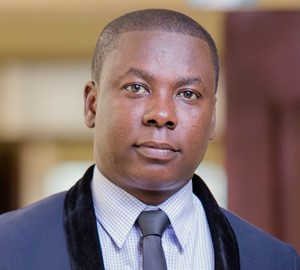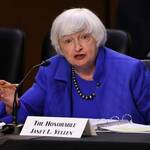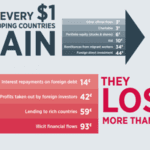Dr. Gideon Boako, the Economic Adviser and spokesperson to Vice-President, Dr. Mahamudu Bawumia, has described the government’s decision to seek the support of the International Monetary Fund (IMF) to fix the country’s debilitating economic situation as a necessary “bitter pill”.
He acknowledged that the country is in difficult times on the back of the global crisis but the record of the governing New Patriotic Party (NPP) “shows that we are the government that makes the best in difficult situations.”
He was speaking at the Graduate Students Association of Ghana (GRASAG) Week Celebration in Sunyani themed: “The Role of Postgraduate Students in Government’s Economic Recovery Program Post Covid-19.
Ghana seeking $3bn from IMF
Ghana is before the IMF for $3 billion to help the country navigate through the hostile economic crisis it finds itself in as a result of the adverse effects of the deadly coronavirus pandemic and the ongoing conflict between Russia and Ukraine.
Dr. Boako, said, “The opposition National Democratic Congress (NDC) will want us to believe that the difficulties imposed on us as a country because of the global crisis and government’s decision to take the bitter pill of seeking for an IMF support to help us address the crisis-driven difficulties we are experiencing means we are failing.
“But, I want to remind them that if they couldn’t have the competence to deliver under their own IMF programme we will deliver,” he added.
He said the president, Nana Addo Dankwa Akufo-Addo, and the New Patriotic Party (NPP) took over the mantle of leadership from the NDC and inherited the NDC’s IMF programme under extreme economic challenges.
“We did not run away from the problem. We took the bull by the horns and demonstrated that we have the competence and commitment to turn difficult situations into prosperity.
“And with determination and hard work, we turned things around from 2017 to first quarter of 2019 under the IMF programme until COVID-19 struck us,” he said.
According to him, challenges and difficult situations are bound to happen in every facet of national development journey but it takes competence and true political commitment to win the battle.
“We are a government of doers. We have done it before and we will certainly do it this time around,” he assured.
COVID-19 exposed systematic weaknesses
That notwithstanding, Dr. Boako bemoaned how the COVID-19 pandemic exposed some of the systematic weaknesses of the Ghanaian economic architecture which he said “taught us the need to build an economy that can withstand external shock.”
“…our continued reliance on imported goods for consumptions is not sustainable in the long term; the slow pace of our movement to mechanised agriculture presents huge challenges; the inability of the informal sector to formalise its business activities to mention a few, are all significant gaps that need to be addressed as a matter of urgency,” he said.
Country’s ability to respond
According to him, the country’s ability to respond to the aforementioned challenges will go a long way in helping build vibrant economy capable of withstanding external shocks such as COVID-19.
Appreciating the catastrophic effects of pandemics such as COVID-19 on growing and developing economies such as Ghana’s, Dr. Boako said: “It is very evident that a time such as this requires innovation, creativity, entrepreneurship and a rekindling of the Ghanaian spirit of perseverance and a general belief in the can-do spirit of the youth. We need the can-do spirit and the ingenuity of the youth to rise up to the occasion.”
Time to industrialise
Moving forward, Dr. Boako said the bedrock of a strong local economy is industrialisation and that the evidence shows that industrialised countries have higher Gross Domestic Product (GDP) as against non-industrial economies.
Industrialisation, he argued enhances the employment outcomes for the youth whilst contributing significantly to the GDP of the country through consumption and exports.
Again, he noted that in times of external shocks, locally produced goods provide the buffer to sustain national economies, adding value to local supply chains and also improving local revenues.
“During the pandemic, we are all aware how Personal Protective Equipment (PPEs) became necessities for survival. We also witnessed how it took local industries a while to respond to demands for these essentials.
“This affirms the need to expedite our efforts to build local industries responding to the local needs of its citizens,” he stated.
Factors causing public debt to rise
GH₵50.1bn borrowed to finance 3 items
An amount of GH₵50.1 billion of current public debt stock, the equivalent of some $7 billion, was borrowed to cumulatively finance three expenditure items and this is attracting GH₵8.5 billion interest annually.
GH₵8.5 billion is about 23% of Ghana’s annual interest payments of GH₵37 billion.
Cost of each of the 3 expenditure items
These are financial sector clean-up – GH₵25 billion, excess capacity charges to Independent Power Producers (IPPs) – GH₵17 billion and COVID-19 pandemic – GH₵8.1 billion.
GH₵62.3bn used to mitigate suffering of Ghanaians in 5 years
Govt noted that these three expenditure items and other interventions made to mitigate the suffering of Ghanaians amounted to GH₵62.3 billion, the equivalent of over $8.5 billion, between 2017 and 2021.
IPPs renegotiations to save GH₵1.5bn
Government hopes to conclude the renegotiation of the energy sector Independent Power Producers (IPPs) capacity charges by the end of the third quarter to reduce excess capacity payments by 20% to generate a total savings of GH₵1.5 billion annually.




